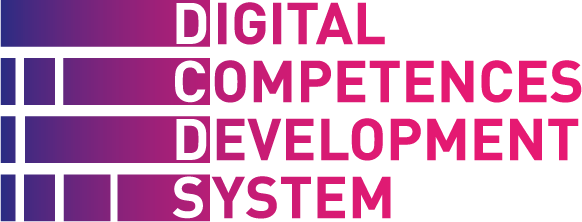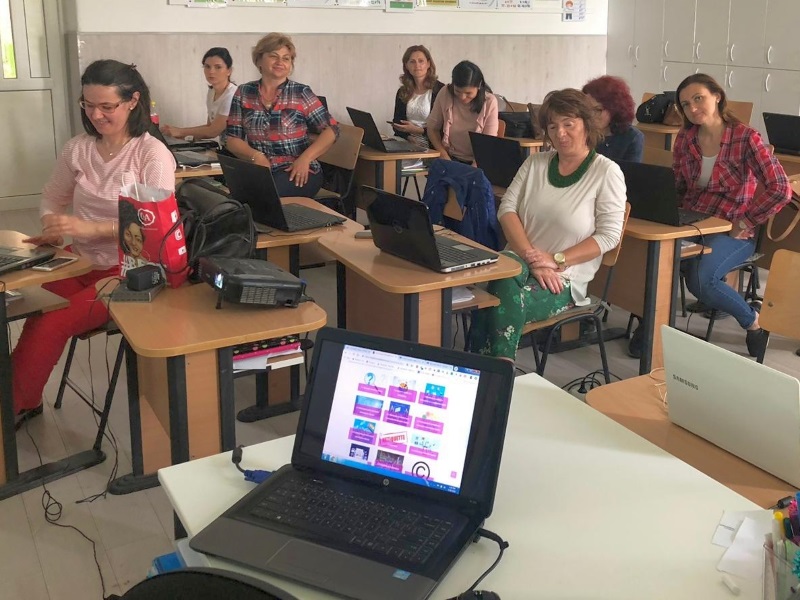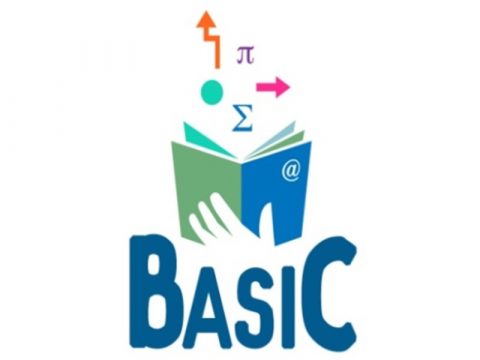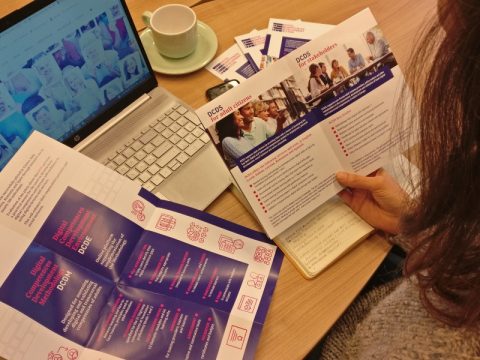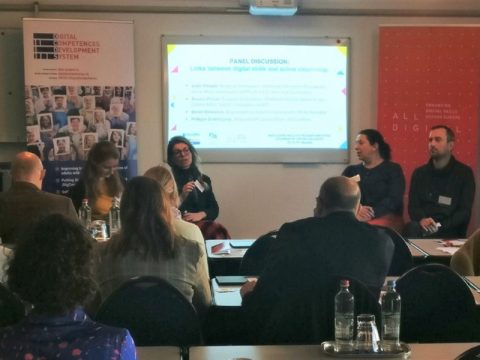EOS Romania, together with project partners from Paul Popescu Neveanu and Giarmata training centres, located in the Timisoara area, launched DCDS pilot courses at the beginning of May 2019, with 33 participants registered to the course in both locations. Participants were selected from the staff of the training centres – auxiliary staff members and secondary education teachers with low digital skills.
The pilot courses are intended to test the DCDS platform and its content in a real work environment with participants that are representative of the target group at which DCDS is aimed. Pilot training is also taking place in Greece, Italy, Latvia and Spain.
Pilot participants were divided into two groups, not only because the piloting took place in separate locations, but also because the participants have different levels of ICT skills and preferences for alternative learning paths. Most of the participants are female, with ages ranging from mid-20s to mid-50s.
Training sessions were held daily from Monday to Friday at the end of the working day. The trainers engaged to deliver the DCDS pilot training believe that the blended learning approach that is used offers the trainees a real opportunity to experience and evaluate teaching and learning methods that are very different from the ones to which they are accustomed. As such many of them found the experience a challenging one. On the other hand, they think that the online learning platform, which offers quality study resources including exercises, summative and formative tests for individual learning, will help learners to improve not just their ICT skills but also their autonomy and their self-study skills by learning how to use an e-learning platform.
Although the levels of education of the Romanian DCDS training participants are not low, their digital competences are quite poor, and they are incapable of performing tasks that require even basic-medium digital skills.
DCDS is particularly relevant for Romania. Each year the European Commission summarizes relevant indicators on Europe’s digital performance and tracks the evolution of EU member states in digital competitiveness. The results are published in the form of the Digital Economy and Skills Index (DESI); Romania has consistently had the lowest score of any EU country since the Index was first published. This is despite the fact that Romania’s education system is one of the most forward looking of any EU country with regard to information technology and communications. A Digital Competence exam has been a compulsory part of the national baccalaureate for several years and IT was recently made a compulsory subject in gymnasium-level schools.
Most of the trainees in the EOS pilots are teachers – perhaps a profession that, in many people’s minds, is not associated with a need for digital competence. This is a fallacy – IT is transforming the education process. To quote from the European Commission’s European Framework for the Digital Competence of Educators: DigCompEdu. DigCompEdu responds to the growing awareness among many European Member States that educators need a set of digital competences specific to their profession in order to be able to seize the potential of digital technologies for enhancing and innovating education.
The BASE module of DCDS pilot training is almost finished in Romania. Trainees enrolled in this compulsory learning path of DCDS system tested their knowledge gained during the pilot exercise, using the online learning environment developed by the DCDS consortium.
Here is what participants say about their experience:

I chose to attend the course because I hoped it would help me in the act of teaching; instead of the traditional methods I hoped it would provide an enabling learning environment, where students are engaged and motivated to learn through new methods. And it did – I’m very pleased I took part.
Luminița Radin

Participating in this course, learning and using DCDS has been a very enjoyable experience. I didn’t really know how to use internet so well. But now I feel able to use these resources in my work and in my personal life. Also, jobs involving digital skills are well paid. This course was very welcome!
Verșigan Daniela

Digital competence is one of the key competences that are required these days. I know that the young generation find it easy to work with computers and tablets, many teachers just don’t have the skills that are needed and are scared of computers and IT. In this context, DCDS has provided us with a very useful resource that’s easy to track and access.
Gabriela Ruxandra Ivănescu

I was very happy when my colleague asked me if I want to follow an ICT training course. He knew that my ICT skills were low because usually had to ask for his help when I had to anything that involved computer work. So, I decided to take the course. Now I know to use the internet and email properly, to manage files and folders, and I’m proud that I’m doing all this by myself.
Ana Ciuturoianu

The main reason that I enrolled in the DCDS course was because I know that new information technologies have a significant role to play in linking the education system to the demands of a knowledge-based information society.
Loredana Bozdog

I chose to attend the course because I hoped it would help me in the act of teaching; instead of the traditional methods I hoped it would provide an enabling learning environment, where students are engaged and motivated to learn through new methods. And it did – I’m very pleased I took part.
Luminița Radin

Participating in this course, learning and using DCDS has been a very enjoyable experience. I didn’t really know how to use internet so well. But now I feel able to use these resources in my work and in my personal life. Also, jobs involving digital skills are well paid. This course was very welcome!
Verșigan Daniela
